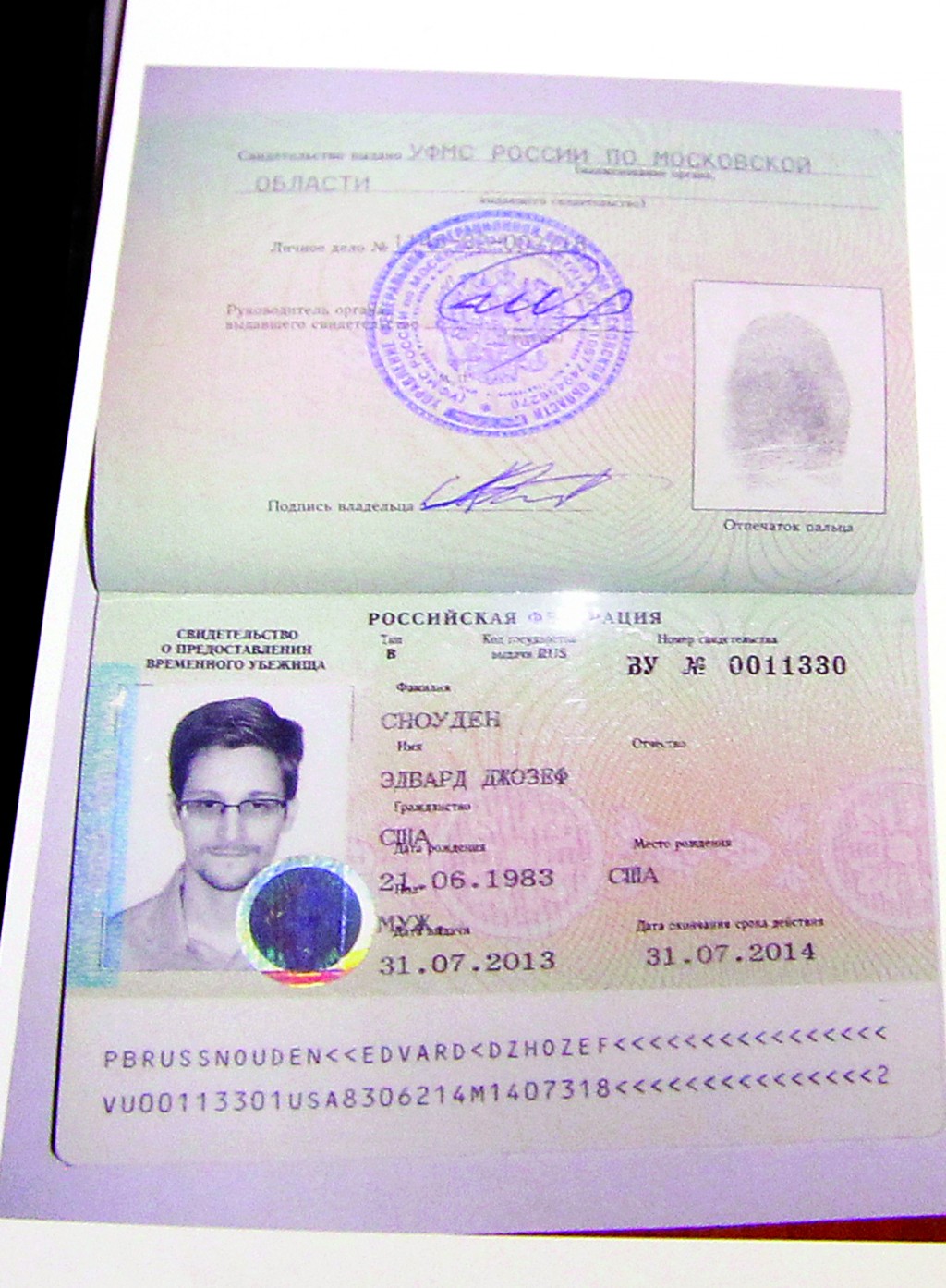Snowden Walks Free in Russia to U.S. Anger

Obama Rethinks Putin Summit
Defying the United States, Russia granted Edward Snowden temporary asylum on Thursday, allowing the National Security Agency leaker to slip out of the Moscow airport where he has been holed up for weeks in the hope of evading espionage charges back home.
Snowden now has plenty of room to roam throughout the sprawling country and continue the bizarre journey that has stretched across half the planet, from Hawaii to Hong Kong to the Russian capital.
Russia appears to have reckoned that ending Snowden’s airport limbo was worth intensifying a political stand-off with the U.S. The White House said it was “extremely disappointed” and warned that the decision could derail an upcoming summit between President Barack Obama and Russian President Vladimir Putin.
The move places a significant new strain on already-corroded relations with Washington. Putin has been increasingly resentful of U.S. criticism and what he calls meddling in Russian affairs. The decision gives Russia cover to depict itself as a defender of human rights, pointing a finger to deflect criticism of its own poor record and tough crackdown on dissent.
Snowden himself made that argument. In a statement from WikiLeaks, which has been assisting him, Snowden was quoted as saying, “Over the past eight weeks we have seen the Obama administration show no respect for international or domestic law, but in the end the law is winning.
“I thank the Russian Federation for granting me asylum in accordance with its laws and international obligations,” he said.
Snowden left his Hawaii home for Hong Kong about three weeks before revealing himself as the source of reports in The Guardian newspaper of a vast surveillance program by the National Security Agency. As Washington put pressure on Hong Kong to extradite him, Snowden boarded a flight to Moscow on June 23, booked on another flight from Moscow to Cuba.
But he never got on that flight. The United States had canceled his passport, so he lacked documents both to board the plane and to enter Russia, leaving him stranded in an airport no-man’s land.
The U.S. has demanded that Russia send Snowden home to face prosecution on espionage charges. Putin dismissed the request and made clear with the granting of asylum that he has no intention of changing his mind.
“We are extremely disappointed that the Russian government would take this step despite our very clear and lawful requests in public and private that Mr. Snowden be expelled and returned to the United States,” said White House spokesman Jay Carney.

Some responses from Washington were stronger. Republican Sen. Lindsey Graham called the granting of asylum “a game-changer in our relationship with Russia … a sign of Vladimir Putin’s clear lack of respect for President Obama.”
There’s no clue about where Snowden will live in Russia or what he will do. Whether Snowden, a self-declared advocate of openness and human rights, will adapt well to a country widely criticized for stifling dissent and trampling on human rights is guesswork as yet.
Snowden had applied for Russian asylum, but Putin said it wouldn’t be considered unless he promised to stop leaking information, an indication that he was sensitive to offending Washington. Snowden withdrew the request but later made the promise and reapplied, effectively forcing Russia’s hand.
During all these weeks, officials said he was living in the airport’s transit zone. But despite the tens of thousands of passengers who pass through daily, there were no reported public sightings.
Nor did anyone apparently notice him leaving, except someone who snapped a photo of his lawyer, Anatoly Kucherena, talking to blurry figures whom Kucherena later confirmed were Snowden and his WikiLeaks handler.
Kucherena declined to say where Snowden would reside, citing security concerns, but said he has American friends assisting him. Snowden reportedly earned high pay as an NSA contractor, but how much money he has on hand in a notoriously expensive city is unknown.
But he now has the right to work in Russia. Late Thursday, the founder of Russia’s social network site VKontakte made what sounded like a job offer.
“We will be happy if he decides to supplement the team of star programmers at VKontakte,” Durov wrote on his page.
Venezuela, Nicaragua and Bolivia had offered Snowden asylum, and in mid-July he told a meeting with human rights figures that he wanted to visit all those countries. But Kucherena said Thursday, “He doesn’t have such plans for now.”
Russian law says he would forfeit his asylum if he left Russia for “a place of residence.” Although the asylum document does not appear to give him the right to travel abroad, the Geneva Convention on Refugees, of which Russia is a member, says refugees must be provided documents allowing them to travel outside the country.
A spokeswoman for the Federal Migration Service said she could not immediately clarify whether Snowden could leave Russia.
Snowden’s father said on Russian media Thursday that he was grateful for the asylum given his son and that he plans to come to Russia to visit him.
Meanwhile, Putin’s foreign affairs aide, Yuri Ushakov, sought Thursday to downplay the impact on relations between the two countries.
“This issue isn’t significant enough to have an impact on political relations,” he said in remarks carried by Russian news agencies.
This article appeared in print on page 1 of edition of Hamodia.
To Read The Full Story
Are you already a subscriber?
Click "Sign In" to log in!

Become a Web Subscriber
Click “Subscribe” below to begin the process of becoming a new subscriber.

Become a Print + Web Subscriber
Click “Subscribe” below to begin the process of becoming a new subscriber.

Renew Print + Web Subscription
Click “Renew Subscription” below to begin the process of renewing your subscription.












